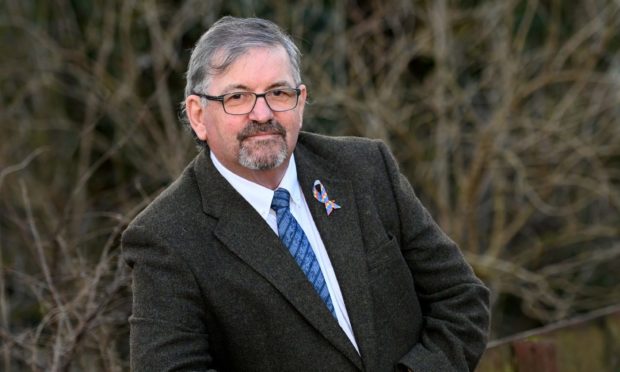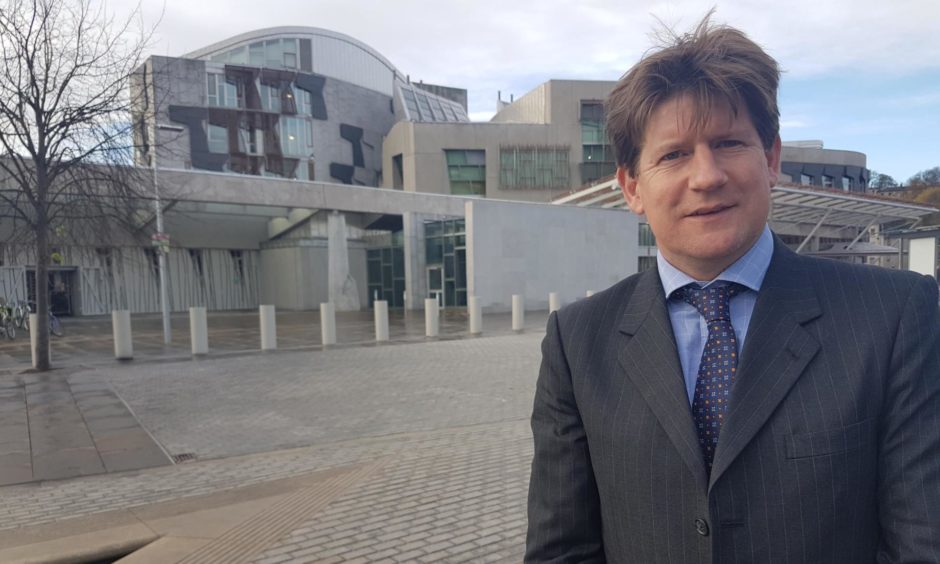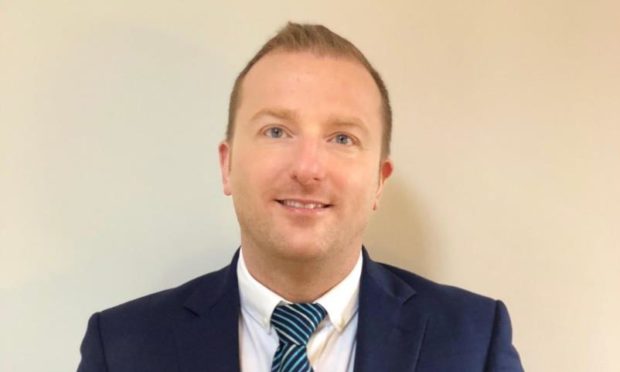Autism campaigners in the north-east have supported calls for concrete action on the “startling” issues facing Scots with autism and learning disabilities.
Edward Fowler, advocate for charity ASK Autism North East, said families in Aberdeen are “crying out for support”, describing a situation where parents are close to “having nervous breakdowns” over the lack of assistance.
It comes after Aberdeenshire West MSP Alexander Burnett won support for a members’ debate in the Scottish Parliament on the need for further support for those with autism and learning disabilities.
Mr Fowler said: “Families are finding now, especially in Aberdeen, there is no support in place.
“We’ve got a Facebook page with 600 people on it and they’re crying out for support in education, social work and employment.
“They’re at crisis point in Aberdeen. There is no long-term strategy.”
Mums are nearly having nervous breakdowns, we’re getting people phoning us in real crisis.”
Edward Fowler of ASK Autism North East
An investment of £35,000 was given to all Scottish local authorities to develop local autism plans in 2011, with Aberdeen City Council signing one off in 2015 and updating it in 2019 to last until 2022.
But Mr Fowler claims many of the strategy’s initial recommendations have “never been implemented or put into effect”.
For example, he says the local authority does not have any social workers trained in autism and there is only one dedicated school for children with additional support needs and “not enough teachers and support staff”.
As children with autism are often placed in mainstream education, he adds that many have “enjoyed” not being at school at points throughout the Covid-19 pandemic because the environment was “too much for them”.
But he says: “Home schooling won’t help in the long-term because they’re losing out on the communication with other children and their peers.
“Mums are nearly having nervous breakdowns, we’re getting people phoning us in real crisis. They have stopped all the respite.”
‘Huge gap’ in provision
When he first became an MSP, in 2016, it was through his Aberdeenshire West constituents that Alexander Burnett learned about the problems faced by those with additional support needs.
But he quickly found other MSPs all over Scotland with similar stories, which led to his co-founding Holyrood’s cross-party group on autism in 2017.
He told MSPs people are “crying out for diagnosis” and support, with a “huge gap” in the provision of these services and people “waiting months” before they get one.
The pandemic has highlighted the “startling” issues faced by those with autism and learning disabilities, with home schooling throwing up “varying feedback”.
Mr Burnett told us: “Until you get a proper diagnosis, you obviously can’t access treatment.
“The lack of diagnosis is already a problem but the lack of diagnosis and treatment falls into that same, ever-growing backlog of NHS work that we need to at least start soon.”
‘Complete failure’ to implement strategies
In terms of what action he would like to see from the Scottish Government, he supports calls for a new commissioner role, in a bid to improve access to services and support.
But Mr Burnett says it is also important to look at what the “existing responsibilities” of government are.
The Scottish Conservative MSP adds: “A lot of the groups, including the cross-party group, called for a commissioner.
“That may well be where we end up and I certainly support the first stage of investigation and consultation in the next parliament, which I think will undoubtedly happen because of the cross-party support it received.
“A lot of people are seeing this as the solution to all evils and wrongs but a lot of where the autistic community is being failed is actually under existing responsibilities.
“There are processes and responsibilities which are not being carried out and they should be.
“Whether it’s local authorities doing things differently, making it a postcode lottery of how autistic people are treated in Scotland, or it’s the complete failure for local authorities to implement autism strategies which were set up by the Scottish Government.
Many thanks once again to you and your team for all the collaborative work we have done through the Autism CPG. It was great to get one of the final slots of Members Business to raise such an important subject – I look forward to continuing my work on supporting this community. https://t.co/0Wz4DRd7HW
— Alex Burnett MSP (@AJABurnett) March 4, 2021
“That’s not just a problem with autism but with a lot of things where grand policies and wishes are projected from Holyrood but actually none of it is followed through.
“That needs to be examined and can be dealt with and maybe that will alleviate a lot of the problems the autistic community suffer from.”
‘Exponentially more stressful’
In his speech to parliament, Mr Burnett told MSPs that those with autism and additional support needs have found that they “fear furlough and redundancy more than others” as they are “scared of asking for reasonable adjustments”.
He added: “If they do lose their job, the struggle of having no job and no income can be exponentially more stressful to this community and the fear of finding a new job that supports them can be crippling.”
Billy Alexander, chief executive of the Grampian Autistic Society, says the pandemic has had a “massive impact” on those with autism and there is a “need for increased funding” to support the community.
On autism strategies being rolled-out in the north-east, Mr Alexander feels that while local authorities are “trying to implement them”, the results have not yet been fully realised.
However, he says a new commissioner may go some way to addressing this and could “stand up and advocate” for people with autism.
‘Remains a priority’
An Aberdeen City Council spokeswoman said: “Autism training and autism awareness-raising remains a service priority reflected within our workforce development plan for children’s social work and within the professional learning offer for education staff.
“The planning for children known to social work and education is undertaken on a multi-agency basis.
“Where a child has a diagnosis of autism, then this will involve subject matter experts including CAMHS and Educational Psychology, where appropriate but also autism-specific services commissioned by Children’s Services.
“Within both mainstream schools and specialist provision, the needs of individuals are planned for and met through various approaches including enhanced training for staff if required, tailored learning opportunities and individual learning pathways.”
Potential role of commission
A Scottish Government spokesperson said: “We’re fully committed to ensuring that autistic people and people with learning disabilities get the right help to achieve their potential.
“Throughout the pandemic we’ve worked closely with autism charities and learning disabilities organisations to provide additional help – and this includes over £450,000 to fund critical frontline support and help ease social isolation.
“We’re supporting the development of an autism pathway to ensure adults in the north-east can be diagnosed – and we’re working with AAA in Aberdeen, an autistic-led organisation, to provide post-diagnostic support.
“We’ll continue to explore the potential role of a commission or commissioner and how best to protect the rights of autistic people and people with a learning disability.


